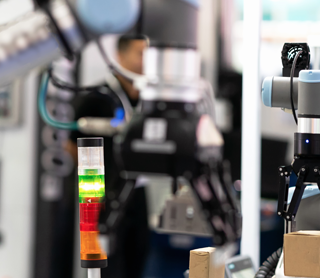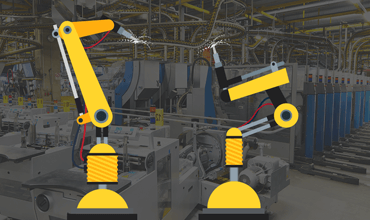Value Summary and Digital Manufacturing Examples
The combination of design, manufacturing and execution data, including the complete engineering flow, material and process traceability data, in the digital domain enables many values critical to modern assembly manufacturing:
- Analysis of trends and performance related to delivery, quality, materials, efficiency and productivity, showing critical improvement and expansion opportunities.
- The ability to avoid lost time and quality compromises when setting up or qualifying a specific product on a production configuration through analysis of data, increasing agility while decreasing quality issues and engineering costs.
- Surgical precision when dealing with quality or product reliability issues within manufacturing or externally in the market. Costs associated with re-work and recalls reduced by an order of magnitude or more in most cases.
- The provision of assurance of conformance and compliance to all relevant guidelines and standards without the overhead and burden of additional work.
What Is Digital Twin & the Digital Thread Definition?
Terms such as digital thread and digital twin are relatively new to the industry, with overlaps building between them as interpretations are made by different organizations in context with the solutions they offer. All of these terms associate aspects of the physical world with data, in a way that provides a complete digital representation of that aspect of the physical world.
The fundamental elements of these components of digital manufacturing are as follows:
Digital Twin:
The complete digital twin comprises three main elements:
- Product: The original product design, including both mechanical and electronic, the design bill of material, the design intent, and the traceability of actions performed during the design process, including, for example, Design For Manufacturing analysis (DFM).
- Factory: The knowledge and capability of manufacturing sites, configured lines and processes, layer by layer down to individual machines and processes, including material flows, and other dependencies.
- Lifecycle: Information about material and product flows throughout the supply-chain, the usage of the product in the market (where appropriate), field maintenance and repair, and ultimately, recycling.
Digital Thread:
Any action or activity that occurs as a part of the manufacturing process, is a part of the Digital Thread in manufacturing. This basically consists of the following digital thread components and elements:
- Engineering data: Includes work assignment, operator instruction, and machine data associated with any production lot or work-order, including history of engineering changes, product variants, substituted materials, etc.
- Material Traceability: The exact record of the origin of materials used on a reference designator basis, including all key and bulk components.
- Process Traceability: The record of test and inspection data, including all key measurements, pass / fail results, corrective actions and repairs, etc.
Digital Twin Standards
The real goal for a digital twin is to remove the costs associated with proprietary data formats, that only work within a narrow range of applications, mirroring in principle just the scope of requirements of a specific point solution. Aegis is active in the creation of an industry-wide Digital Twin standard that allows interoperability of data from design, throughout manufacturing and through to market information. This initiative eliminates duplication of data, the need for middleware, and any tie-in to a single solution from a single vendor.
FactoryLogix, Digital Twin and Digital Thread
Unlike legacy systems, which have their coding and architectural technology based in a time before true factory digitalization and IIoT technology, FactoryLogix has been developed from the ground-up as the center of operations of the Smart, digital assembly manufacturing environment. Almost all aspects of FactoryLogix create and/or utilize Digital Thread and Digital Twin information:
- Digital Manufacturing Engineering (DME): Takes data about the product design together with local material information, to create the manufacturing data model, which is then applied on demand to any of the defined production configurations, generating machine data and paperless work-instructions for operators.
- Quality Management System: Records all aspects of process traceability, including the management of repair operations, in context with the defined manufacturing data model.
- Lean Material Management: Provides exact material traceability, all the way from incoming materials received into the factory, throughout all logistics and storage processes, to the machines themselves as they consume materials in real-time, in context with the defined manufacturing data model.
- MRO / RMA: the ability to connect and contextualize field repair activities with the original manufacturing data.
- Analytics: Providing both real-time dashboards / KPIs and reports of live manufacturing data, as well as the creation of the manufacturing data warehouse for historical reporting and analytics, both contextualized over all facets of the assembly manufacturing process, together with the defined manufacturing data model.
FactoryLogix is uniquely positioned as the only IIoT-driven MES platform that combines all key aspects of digital manufacturing, no matter by what term they may be called, providing best practices for customers who wish to enjoy the benefits of digitalization, without the needless burden of restrictions and artificial tie-ins to proprietary solutions.








